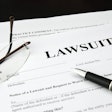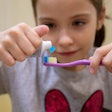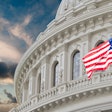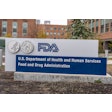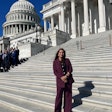
WASHINGTON (Reuters), Aug 15 - The U.S. Food and Drug Administration said on Friday it will hold a public meeting next month about the safety of a chemical found in baby bottles and many other products.
Environmental groups say the chemical, bisphenol A, can hurt children and animals. But the FDA and European regulators, as well as the plastics industry, say it is safe.
The National Toxicology Program, part of the U.S. government's National Institutes of Health, has issued a draft report expressing concern that bisphenol A could cause neural and behavioral problems in fetuses, infants and children.
The FDA said its meeting would focus on this.
The chemical, commonly known as BPA, is used in polycarbonate bottles, including water bottles and baby bottles, as well as the lining of cans, including infant formula cans.
Environmental and consumer safety groups have pointed to studies that show the chemical can interfere with how the body absorbs the hormone estrogen, which is key to the development of young bodies.
The meeting, set for September 16, will welcome public input, the FDA said.
The agency has posted a draft assessment that says further study of the chemical's safety is badly needed, as there is not enough information now to judge whether people are taking in unsafe levels -- and what those unsafe levels might be.
Democratic U.S. senators in April introduced a bill to ban BPA in children's products. Canada is also moving to ban it.
U.S. states including California, Maryland, Minnesota, and Michigan are considering bills to ban or restrict BPA in children's products.
But a scientific panel of the European Food Safety Authority said last month it had looked into how people metabolize BPA and concluded that the tiny amounts of the chemical to which humans are exposed leave the body quickly enough to cause no harm.
Some retailers and manufacturers have said they will stop using the chemical in some products.
Last Updated: 2008-08-15 15:31:23 -0400 (Reuters Health)
Copyright © 2008 Reuters Limited. All rights reserved. Republication or redistribution of Reuters content, including by framing or similar means, is expressly prohibited without the prior written consent of Reuters. Reuters shall not be liable for any errors or delays in the content, or for any actions taken in reliance thereon. Reuters and the Reuters sphere logo are registered trademarks and trademarks of the Reuters group of companies around the world.











